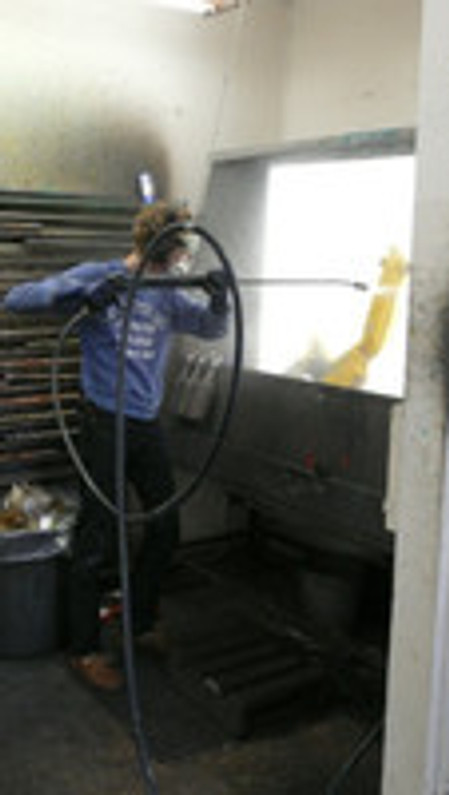Stay Safe When Operating a Pressure Washer!
Pressure washers are powerful tools that spray a high-pressure stream of water from the nozzle. They are frequently used to clean vehicles, heavy machines, driveways, roads, buildings and roofs. With nothing more than pressurized water, they can easily remove stubborn, caked-on dirt in just seconds. However, pressure washers can also cause serious injury when used improperly.
Gas or Electric Pressure Washer?
Most pressure washers fall under one of two different categories: gas or electric. Electric pressure washers tend to have slightly less power (but still enough to cause serious injury) and can be used indoors and outdoors. Gas models, on the other hand, can only be used outdoors.
If you opt for a gas-powered pressure washer, make sure you use it in an open outdoor environment where the fumes can dissipate into the surrounding atmosphere. Running a gas model indoors can result in a dangerous buildup of toxic monoxide.
Know The PSI
A pressure washer's power is rated in pounds-per-square-inch (PSI). The higher the PSI, the more power its packing. Entry-grade consumer models typically fall somewhere in the range of 1,300-1,800 PSI, while professional-grade gas models can pump out as much as 4,000-5,000 PSI.
Before operating a pressure washer, identify the pressure controls and cut-off features. Most models allow the operator to raise or lower the pressure as needed. It's usually best to start with the lowest PSI possible and then gradually raise it until it's powerful enough to perform the job.
Whether you own an entry or professional-grade model, you should follow some basic safety tips when operating a pressure washer to prevent injury.
- Plug electric pressure washers into a grounded socket.
- Only use heavy-duty extension cords with electric pressure washers.
- Keep all electrical cables out of free-standing water.
- Wear safety glasses to shield your eyes from flying debris.
- Wear thick rubber boots to protect your feet.
- Point pressure washer nozzle away from your body at all times.
- Pressure washers are quite noisy and can lead to hearing loss. Protect your hearing by wearing ear plugs or noise-cancelling headphones.
- Disconnect your pressure washer when not in use.
Following the tips outlined here will allow you to safely use your pressure washer. Above all else, though, pay attention to the nozzle's direction. Even if the water is off, you may accidentally hit the trigger to send a high-pressure beam of water flying towards another person. Taking some basic safety precautions will dramatically reduce the chance of injury.
Recent Posts
-
Fire Safety in the Workplace: What You Need to Know
What steps are you taking to prevent fires in your workplace? According to the U.S. Occupational Saf …Aug 23rd 2023 -
Is It Safe to Go Jogging With a Cold Infection?
If you're suffering from a cold infection, you might be wondering whether it's safe to go jogging. T …Aug 22nd 2023 -
5 Safety Tips to Follow When Using a Powder-Actuated Tool
Powder-actuated tools are commonly used to join materials to steel and concrete. Also known as Hilti …Aug 20th 2023




